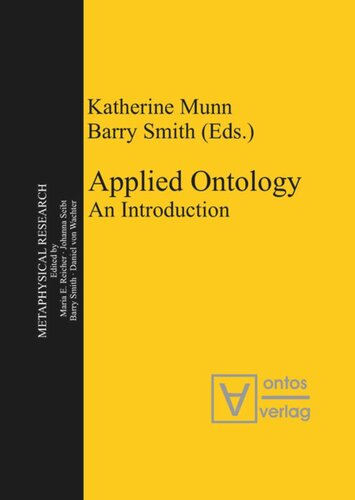

Most ebook files are in PDF format, so you can easily read them using various software such as Foxit Reader or directly on the Google Chrome browser.
Some ebook files are released by publishers in other formats such as .awz, .mobi, .epub, .fb2, etc. You may need to install specific software to read these formats on mobile/PC, such as Calibre.
Please read the tutorial at this link: https://ebookbell.com/faq
We offer FREE conversion to the popular formats you request; however, this may take some time. Therefore, right after payment, please email us, and we will try to provide the service as quickly as possible.
For some exceptional file formats or broken links (if any), please refrain from opening any disputes. Instead, email us first, and we will try to assist within a maximum of 6 hours.
EbookBell Team

4.4
62 reviewsOntology is the philosophical discipline which aims to understand how things in the world are divided into categories and how these categories are related together. This is exactly what information scientists aim for in creating structured, automated representations, called ‘ontologies,’ for managing information in fields such as science, government, industry, and healthcare. Currently, these systems are designed in a variety of different ways, so they cannot share data with one another. They are often idiosyncratically structured, accessible only to those who created them, and unable to serve as inputs for automated reasoning. This volume shows, in a non-technical way and using examples from medicine and biology, how the rigorous application of theories and insights from philosophical ontology can improve the ontologies upon which information management depends.